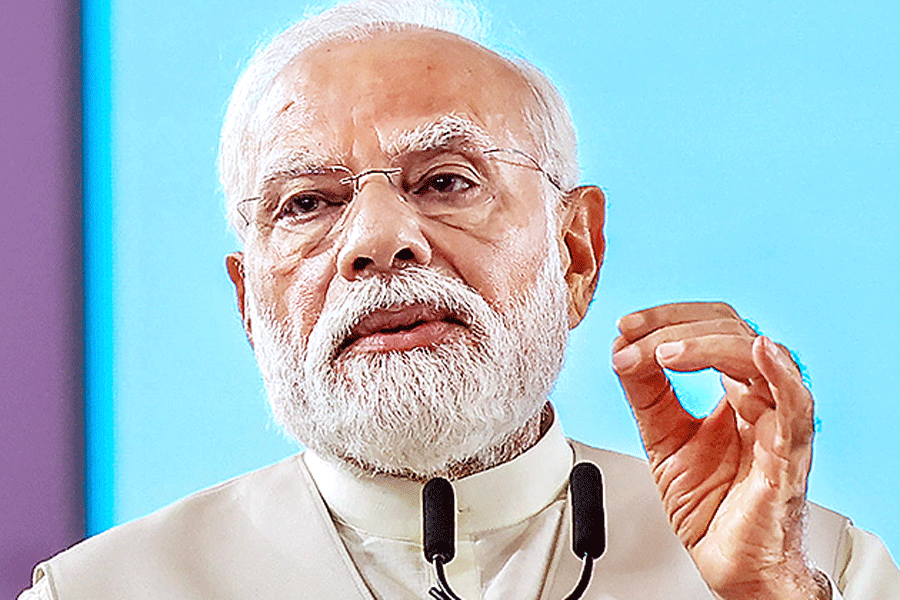Prime Minister Narendra Modi has identified a “serious worry” for the country. No, it is not politics of hate and the resultant violence. It’s not weakening of democratic institutions. Nor is it the economic slide, rising unemployment and sky-rocketing prices. It is not a hostile China, either.
The real worry, according to the Prime Minister, is public welfare. It is the tendency of the state governments to provide assistance to the weakest sections of society, but the Prime Minister on Tuesday described such a propensity as “anti-development”.
Addressing a public rally in Pune, Modi said: “We see all-round development in Maharashtra but what is happening in Karnataka is before all of us. Bangalore is such a big IT hub. It is a global investors’ centre. It was necessary for Karnataka to be developed fast at this stage. But the ill-effects of a government formed by making the kind of promises it made have come before the country in such a short time.”
He rubbed the message in: “When a party empties the government’s coffers for vested interests, people of the state face its worst consequences. The future of the youth comes into question. The party which makes those promises succeeds in forming its government but the people’s future gets endangered. The Karnataka government itself has conceded that it doesn’t have the resources for Bangalore’s development.”
Modi further said: “Yeh desh ke liye bahut chinta-janak hai (This is extremely worrying for the country.) The situation is the same in Rajasthan. We see debt is rising and development has come to a standstill in Rajasthan. The policy, intent and commitment (niti, neeyat aur nishtha) of those who run the government and the system decide whether development is possible or not.”
Both Karnataka and Rajasthan are ruled by the Congress.
While the entire Opposition lamented in Delhi that Modi was lecturing the nation from Pune when Parliament is stalled because of his failure to speak on Manipur, the Prime Minister chose to identify welfare schemes as the gravest worry for the country. Using stern expressions like “Hitler-shahi (Hitler’s rule)” to describe what’s going on in the country, Congress veteran Mallikarjun Kharge said the Opposition could have rebutted him on every point had Modi spoken in Parliament.
After Manipur, the politics of hate has demonstrated its ugly face in Haryana where communal clashes triggered arson and murder in Mewat on Monday and the inferno reached Gurgaon on Tuesday. Congress leader Rahul Gandhi tweeted: “BJP, media and the forces standing with them have spread the kerosene of hate over the entire country. Only love can stamp out this fire.”
Modi was silent when politics of hate had engulfed the “IT hub and global investors’ centre” during BJP rule. He didn’t utter a word when the news coming out of Karnataka revolved around “azan-halal-hijab”. He has not expressed his opinion on the extra-judicial killings in Uttar Pradesh and the myriad scams in Madhya Pradesh, both ruled by the BJP. Despite being the Prime Minister, he has shown the tendency of targeting only Opposition-helmed states.
In Karnataka, the five Congress guarantees are: Rs 2,000 per month to women heads of all families; 200 units of free power to all households; Rs 3,000 every month to unemployed graduates and Rs 1,500 to diploma holders; 10kg of free rice to every poor person; and free bus travel for women.
The Congress has justified such programmes at a time of distress by saying: “These promises will cost around Rs 45,000 crore. The Karnataka budget is around Rs 3.2 lakh crore. A government that cannot spend 12 per cent to 15 per cent of its budget on welfare schemes has no right to stay in office.”










